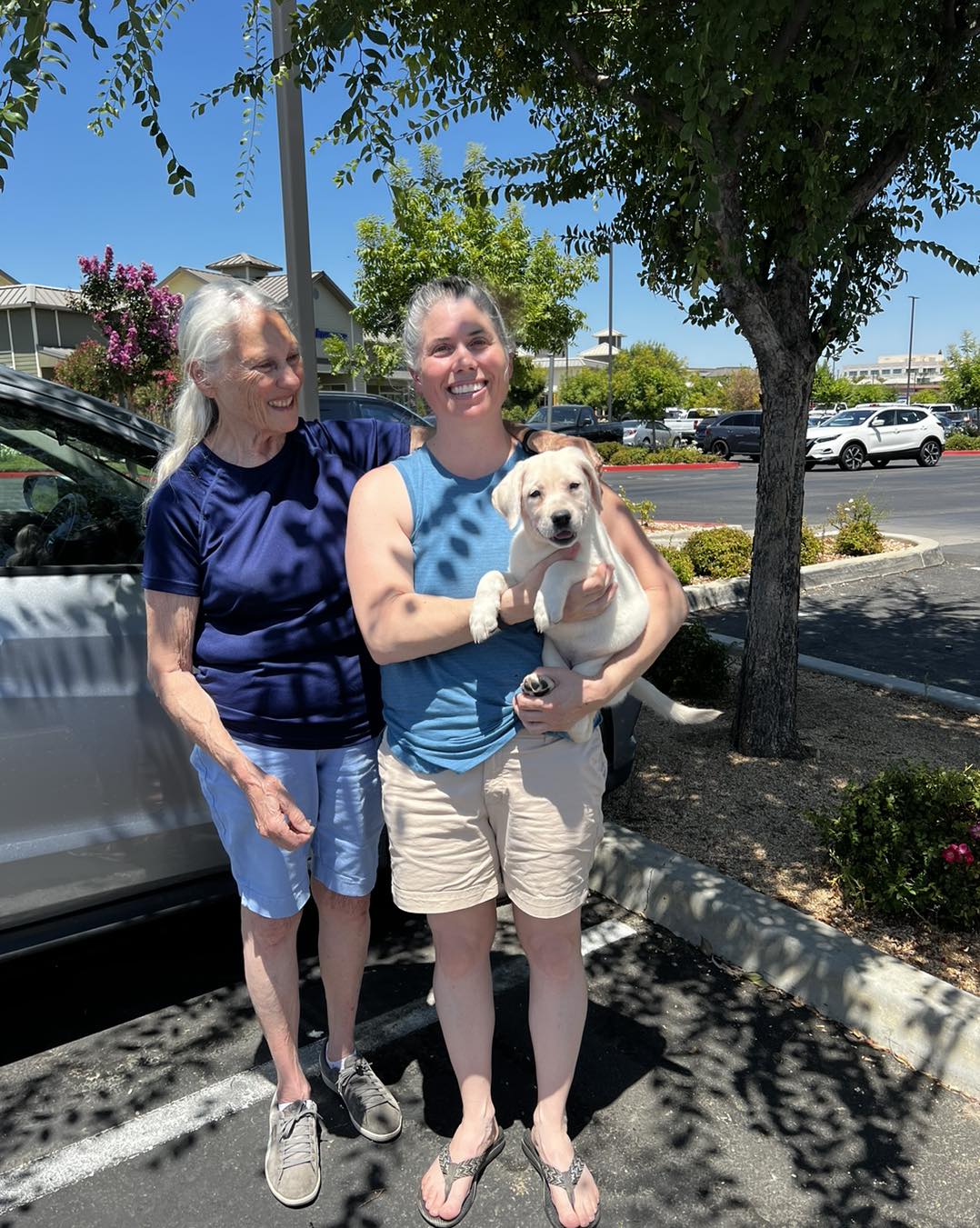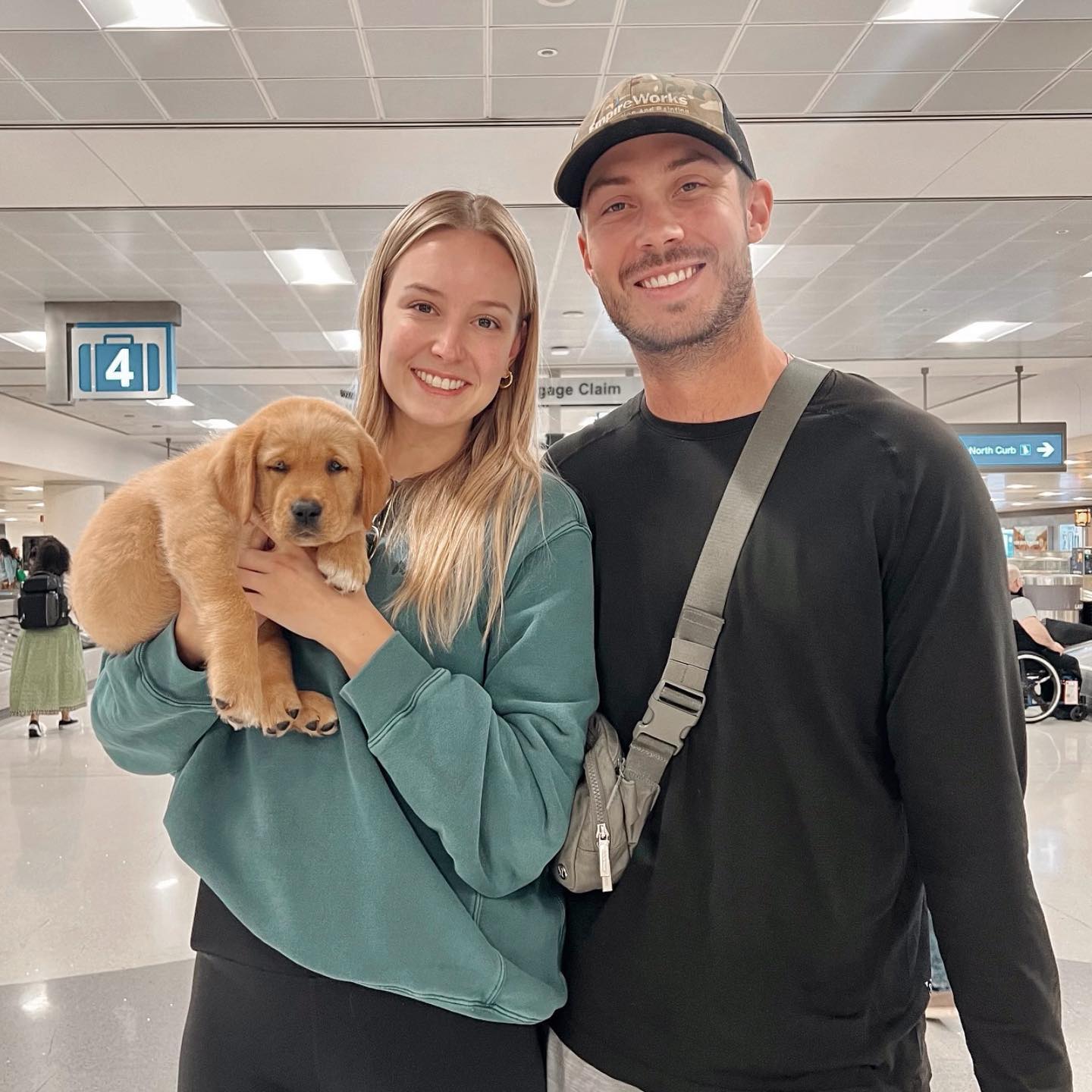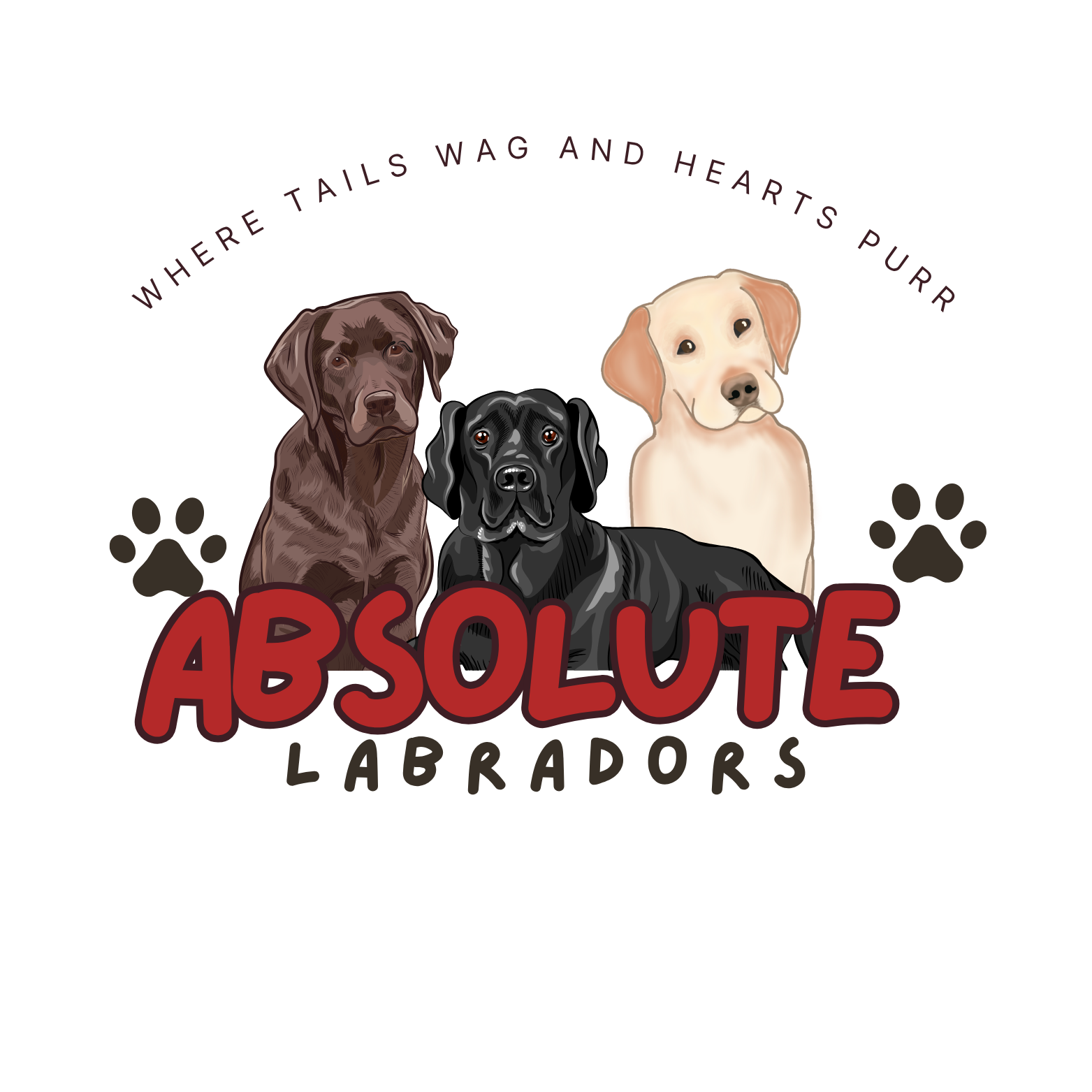
The Labrador Retriever is a sturdy, medium-to-large dog, standing 21.5 to 24.5 inches tall, with a strong, athletic build and a short, dense coat that repels water. Their expressive, kind eyes and otter-like tail thick at the base and tapering toward the tip add to their friendly, outgoing appearance. Coat colors come in classic black, yellow, or chocolate, all with a sleek, easy-care finish.
Bred in Newfoundland as fishing companions, Labs excel in retrieving game and love water, thanks to their webbed paws and water-resistant coat. Highly intelligent and eager to please, they thrive on training and excel as service dogs, search-and-rescue partners, and family pets. Playful and sociable, they bond deeply with their families, including children and other pets, though their enthusiasm can sometimes be boisterous.
Labs are energetic and require regular exercise swimming, fetch, or long walks to stay happy and healthy. Their hearty appetite demands portion control to avoid weight gain. Known for their gentle mouths, goofy antics, and unwavering loyalty, Labrador Retrievers embody a perfect mix of work ethic and affection, earning their place as America’s most beloved breed.
“A big heart wrapped in fur always ready for adventure or a couch snuggle
The Labrador Retriever is generally a robust and healthy breed, but like all dogs, they are prone to certain genetic and lifestyle-related health issues. Responsible breeding, proper diet, regular exercise, and preventive veterinary care can help ensure a long, happy life for your Lab.
Hip & Elbow Dysplasia
A hereditary condition where joints develop abnormally, leading to arthritis and mobility issues.
Prevention: Weight management, joint supplements (glucosamine/chondroitin), and screening breeding dogs (OFA or PennHIP certifications).
Obesity
Labs love food and are prone to overeating, which can lead to diabetes, joint stress, and heart disease.
Prevention: Measure meals, limit treats, and ensure regular exercise.
Progressive Retinal Atrophy (PRA)
A degenerative eye disease that can lead to blindness.
Prevention: Genetic testing before breeding; regular eye exams (CERF).
Exercise-Induced Collapse (EIC)
A genetic disorder causing muscle weakness, incoordination, or collapse after intense activity.
Prevention: Genetic testing before breeding; moderate exercise for affected dogs.
Heart Conditions (Tricuspid Valve Dysplasia, Cardiomyopathy)
Some Labs may develop heart murmurs or valve defects.
Prevention: Regular vet check-ups, especially for breeding dogs.
Ear Infections
Their floppy ears trap moisture, making them prone to bacterial or yeast infections.
Prevention: Weekly ear cleaning and drying after swimming.
Bloat (Gastric Dilatation-Volvulus, GDV)
A life-threatening condition where the stomach twists, trapping gas and cutting off blood flow.
Prevention: Feed smaller, frequent meals; avoid vigorous exercise right after eating.
Allergies (Skin & Food)
Labs can develop itchy skin, hot spots, or digestive issues due to allergies.
Prevention: High-quality diet, omega-3 supplements, and vet-recommended treatments.
Average Lifespan: 10–14 years
Key Health Tips:
Maintain a healthy weight (avoid overfeeding).
Provide daily exercise (but avoid overexertion in puppies to protect joints).
Schedule annual vet visits, including heart, hip, and eye checks.
Brush teeth regularly to prevent periodontal disease.
Spay/neuter at the appropriate age (consult your vet).
Labs are known for their love of food—and their tendency to overeat! Proper nutrition is key to maintaining their energy, weight, and overall health.
✔ High-quality protein (chicken, fish, lamb, or beef as first ingredient)
✔ Moderate fat (for energy, but not excessive to avoid weight gain)
✔ Complex carbs (brown rice, sweet potatoes, oats)
✔ Omega-3 fatty acids (for skin, coat, and joint health)
✔ Controlled portions (Labs will eat until they burst!)
Puppies (2-6 months): 3-4 meals/day
Adolescents (6-12 months): 2-3 meals/day
Adults (1+ years): 2 measured meals/day
Seniors (7+ years): May need fewer calories; consult your vet
Obesity – The #1 health risk! Stick to scheduled feedings, avoid table scraps.
Food allergies – Some Labs are sensitive to grains, chicken, or beef.
Bloat risk – Avoid vigorous exercise 1 hour before/after meals.
Dry kibble: Look for “complete & balanced” AAFCO approval.
Wet food: Good for hydration, but check calories.
Raw/home-cooked: Only with vet guidance to ensure proper nutrition.
✓ Carrots, green beans, apple slices
✓ Frozen blueberries or banana chunks
✓ Plain cooked chicken or salmon
Pro Tip: Use a slow-feeder bowl if your Lab gulps food too fast!
“A well-fed Lab is a happy Lab—just don’t let those puppy eyes trick you into overfeeding!” 🍗🐾
Despite their short coat, Labs require regular grooming to keep them clean, healthy, and comfortable. Here’s what you need to know:
Brushing:
Frequency: 1-2 times per week (daily during shedding seasons)
Tool: Rubber curry brush or slicker brush
Why? Removes loose fur, distributes natural oils, and reduces shedding
Bathing:
Frequency: Every 2-3 months (or when dirty/smelly)
Tip: Use a mild dog shampoo to avoid drying out their skin
Post-Swim Care: Rinse with fresh water to remove chlorine/salt
Nail Trimming:
Frequency: Every 3-4 weeks
Signs they’re too long: Clicking on floors, difficulty walking
Caution: Avoid cutting the quick (painful & bleeds)
Ear Cleaning:
Frequency: Weekly (Labs are prone to infections)
Method: Use a vet-approved ear cleaner and cotton ball
Dental Care:
Frequency: Brush teeth 2-3 times per week (daily is ideal)
Alternatives: Dental chews, water additives, or vet cleanings
Shedding: Labs “blow coat” twice a year (spring/fall)—increase brushing!
Winter: Check paws for ice/salt irritation; consider a dog coat in extreme cold
Summer: Watch for overheating; never shave their coat (it protects their skin)
Most Labs don’t need it, but a deshedding treatment or sanitary trim can help.
Labs are high-energy athletes bred to work all day. Without proper exercise, they can become destructive or develop behavioral issues. Here’s how to keep yours in top shape:
Minimum: 60-90 minutes of activity
Ideal: 2+ hours for working lines or young adults
Seniors (7+ yrs): 30-60 minutes of low-impact exercise
Swimming – Their webbed paws and water-resistant coat make them natural swimmers (great for joints!).
Fetch – A Labrador’s favorite activity! Use Chuckit! launchers for high-energy dogs.
Running/Jogging – Wait until they’re 18+ months old to protect developing joints.
Hiking – Let them carry a dog pack (max 10% body weight).
Dog Sports – Obedience, agility, dock diving, or field trials.
Puzzle toys (Kong Wobbler, Outward Hound)
Scent games (hide treats around the yard)
Training sessions (5-10 mins, 2-3x daily)
✔ Morning & evening sessions – Avoid midday heat
✔ Puppies (under 1 year) – Short, frequent play (5 mins per month of age)
✔ Winter care – Use dog boots if walking on salted pavement
✔ Post-exercise – Check paws for cuts, hydrate, and cool down gradually
Watch For: Overheating (excessive panting, drooling) or limping (joint stress).
“A well-exercised Lab = a calm, happy dog who won’t eat your couch!” 🎾🏊
Labs are highly trainable but need consistent, positive reinforcement. Their intelligence + food motivation = excellent students (if you keep it interesting!).
Basic Obedience (Start Early!)
Essential commands: Sit, Stay, Come, Down, Leave It
Special Lab focus: “Drop It” (for retrievers who love holding objects)
Leash Manners
Labs pull strongly – train “heel” using high-value treats
Harnesses work better than collars for powerful pullers
Socialization (Critical!)
Expose puppies to: People, dogs, noises, surfaces before 16 weeks
Adult Labs remain friendly but may get overly excited
✓ Positive reinforcement (Treats! Praise! Play!)
✓ Short sessions (5-15 mins, 2-3x daily)
✓ Real-world practice (Practice “stay” at the park, “leave it” with food on sidewalk)
Food obsession: Use their hunger for training, but don’t overfeed
Mouthiness: Redirect chewing to appropriate toys
Overexcitement: Teach “settle” on command
Retrieving (perfect for fetch-loving Labs)
Service dog work (their temperament excels here)
Nosework (tapping into their scenting abilities)
Pro Tip: Always end training on a success – even if it means going back to an easier command they know well.
*”A trained Lab is your best friend; an untrained Lab is a 70-pound tornado of love!”* 🐕🎓
We provide the best care your pet deserves

We offer quick and reliable transportation for all our puppies to anywhere in the US and Canada. You are guaranteed to receive your puppy within 48h of purchase.

We assure all our clients our dogs have been properly tested before breeding and our puppies are fully healthy. As such, we offer a one year guarantee on their health.
We offer a 14-day return policy in case the puppy isn’t a good fit for your home.
Yes, we receive online payments to make things easier and more convenient for our clients.

Find the perfect puppy
Secure your puppy
Pick Up or we bring to You
Bond with your Baby

NAME: KYLE
SEX: MALE
AGE: 10 WEEKS OLD
PRICE: $800
BREED: LABRADOR RETRIEVER
HEALTH STATUS: Fully vaccinated and up to date on shots. Health certificates will be provided and health checks are done before going to their new homes.
WHAT’S INCLUDED: AKC Papers, Vet records, Toys, Sample Food & 1 Year health guarantee
AVAILABILITY: Ready for adoption now!
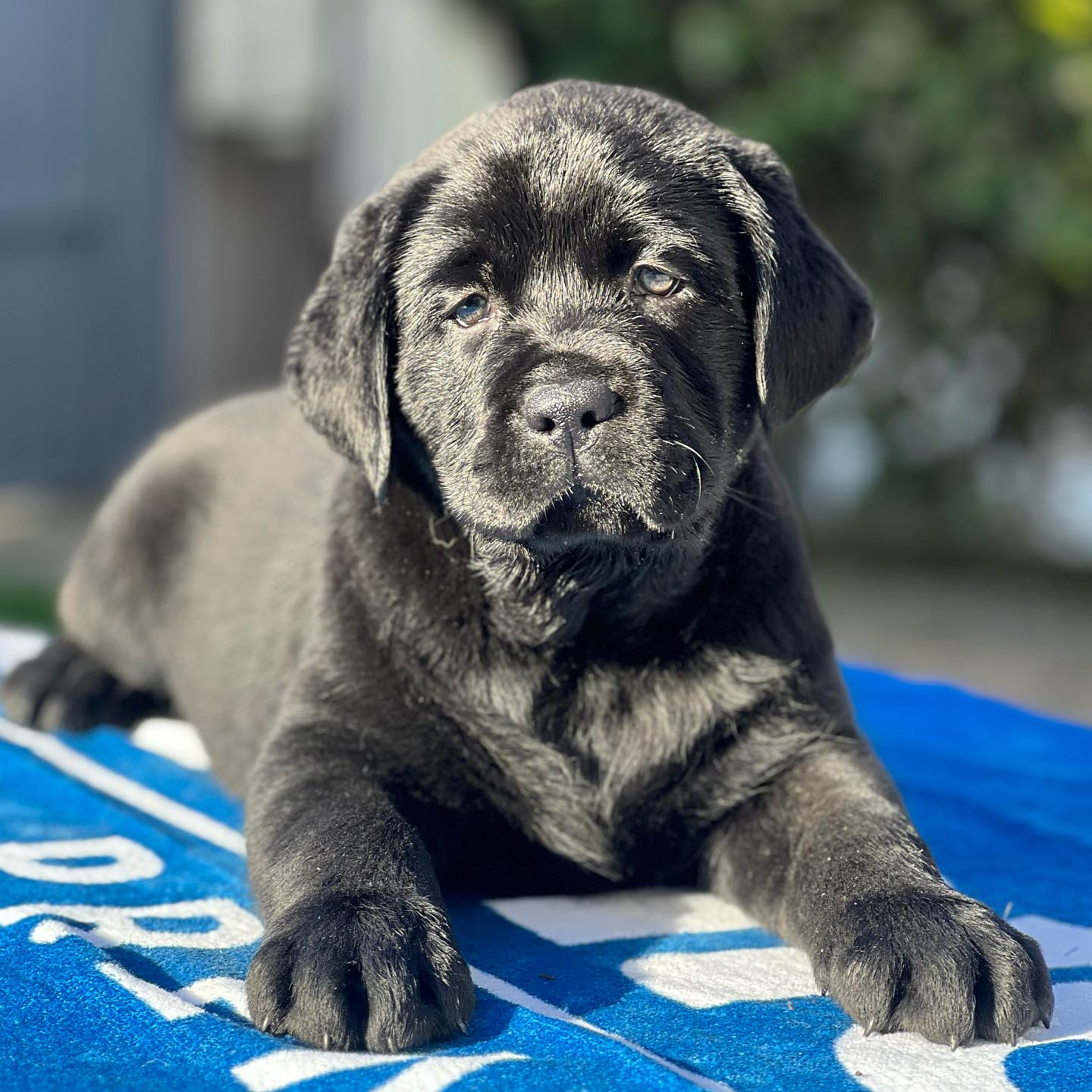
NAME: KATE
SEX: FEMALE
AGE: 10 WEEKS OLD
PRICE: $600
BREED: LABRADOR RETRIEVER
HEALTH STATUS: Fully vaccinated and up to date on shots. Health certificates will be provided and health checks are done before going to their new homes
WHAT’S INCLUDED: AKC Papers, Vet records, Toys, Sample Food & 1 Year health guarantee
AVAILABILITY: Found a loving home 🏠!

NAME: CODY
SEX: MALE
AGE: 10 WEEKS OLD
PRICE: $750
BREED: LABRADOR RETRIEVER
HEALTH STATUS: Fully vaccinated and up to date on shots. Health certificates will be provided and health checks are done before going to their new homes.
WHAT’S INCLUDED: AKC Papers, Vet records, Toys, Sample Food & 1 Year health guarantee
AVAILABILITY: Found a loving home 🏠!
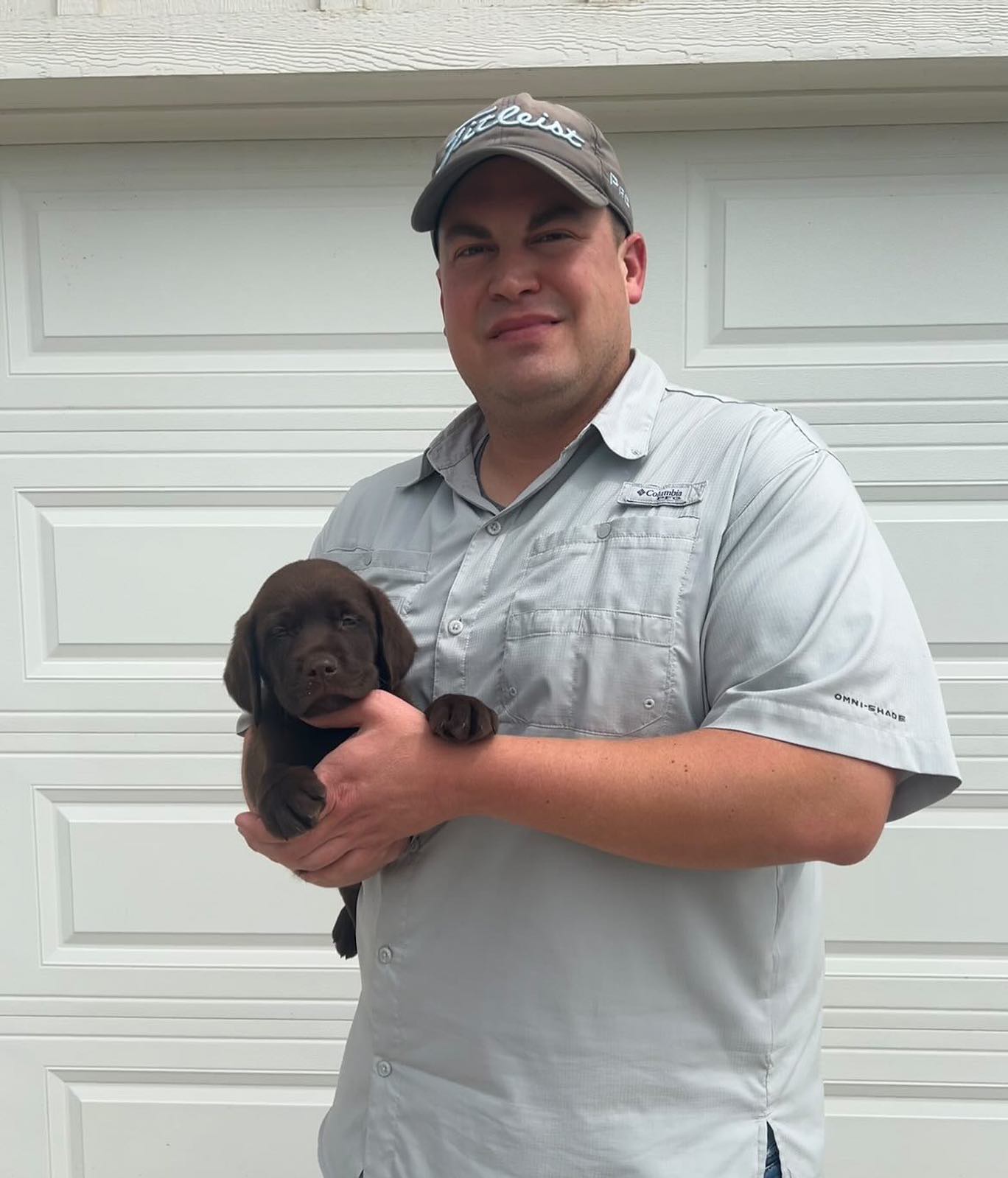
Great experience getting my baby CODY! Very understanding and upfront through the entire process, highly recommended. Dogs are of great quality and I would not hesitate to do business again.
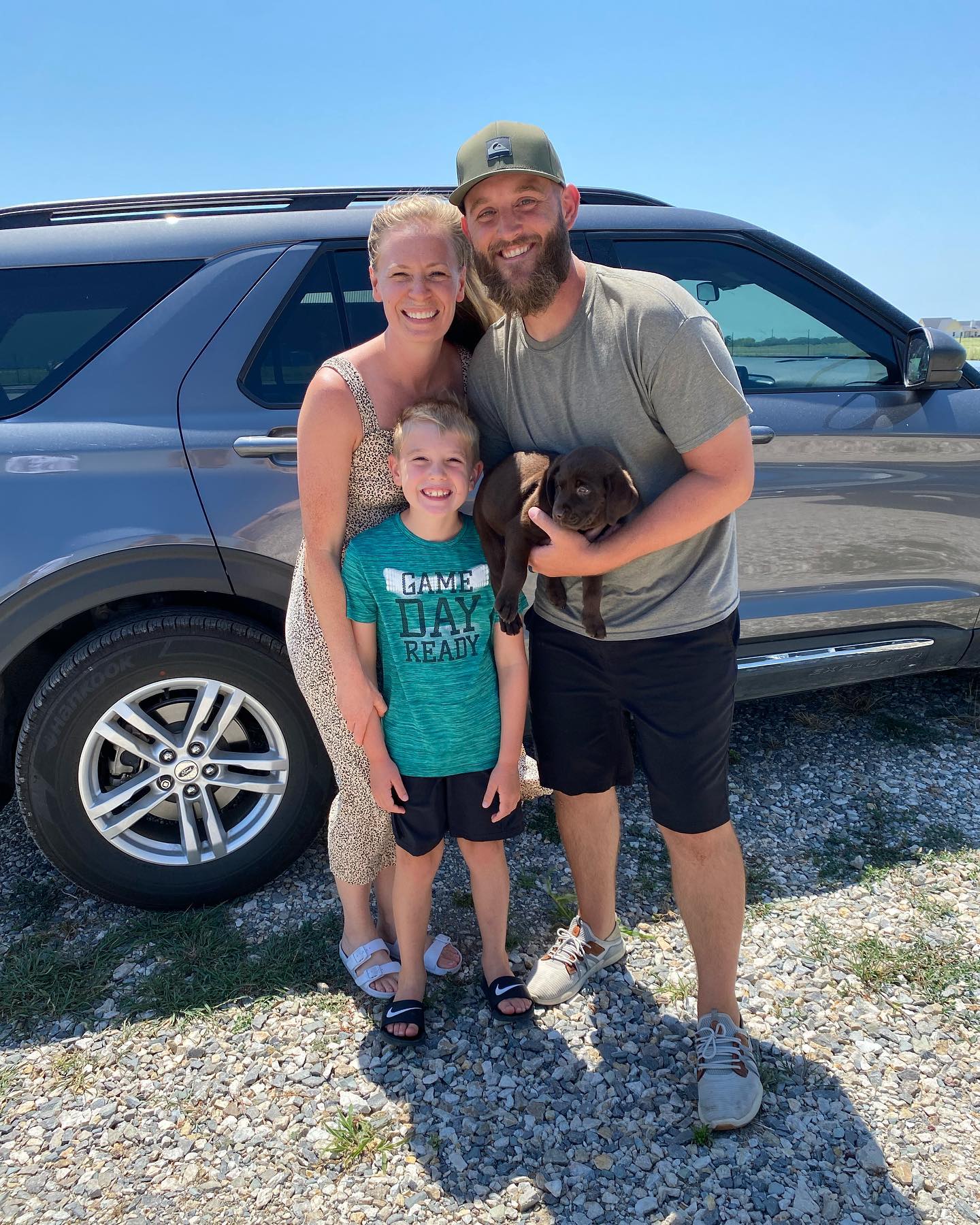
“The Puppy was delivered on time as promised. it was a birthday present for my wife. She was so excited. i want to say thank you to the whole Labrador Retrievers team”

“Am sorry to say that i had some doubts from the beginning but i decided to give it a try. i was surprised when i saw your delivery van in front of my house. i want to say Thank You so much”
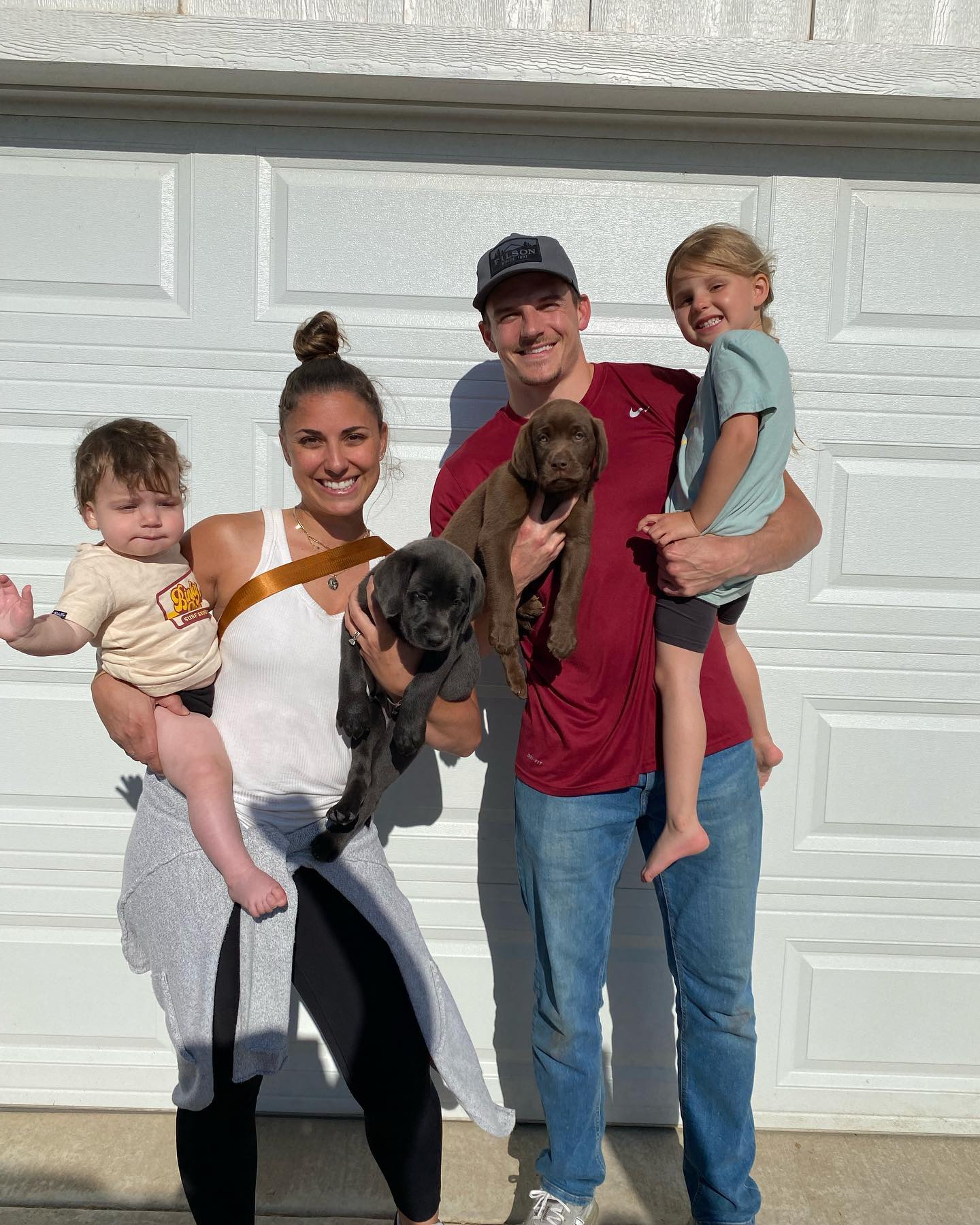
A Labrador Retriever puppy fills your days with boundless joy, slobbery kisses, and relentless optimism but their big-hearted enthusiasm isn’t for everyone. These devoted adventurers thrive with owners who match their energy.
Before bringing one home, ask yourself:
🐕 Are You Ready for a Giant Heart in a Goofy Package?
Labs are famously loyal, energetic, and food-obsessed. They need: Reward-based training (their stomachs are their motivation) Early socialization (their friendly leaps can topple small children) Athletic outlets (fetch, swimming, or hiking or they’ll invent their own chaos)
🏠 Can You Keep Up With Their “More Is More” Lifestyle?
Labs are sturdy yet mischievous. They require: Bully-proof toys (flimsy plushies last 3 seconds) Water everywhere (lakes, puddles, even your shower—they’re part fish) Crumb-free floors (their nose will find that dropped chip)
❤️ Will You Adore Their Over-the-Top Love??
From full-body wiggles at the door to their “helpful” habit of carrying your shoes (or groceries… or the remote), Labs are heartbreakers in the best way. If you’re ready for a shadow who’ll love you harder than they swim, chase, or shed—a Labrador might just be your perfect match.
Think a Absolute Labrador is right for you? Contact us to learn more about our puppies! 🐶💕
